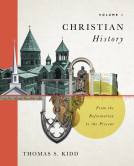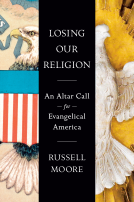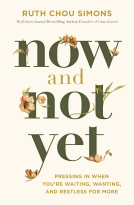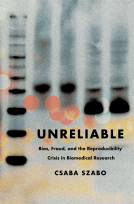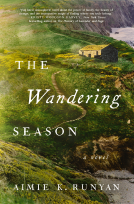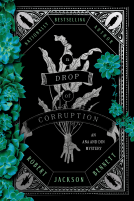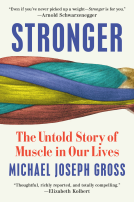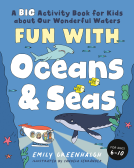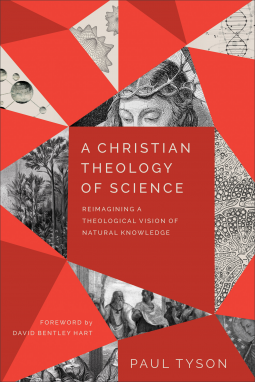
A Christian Theology of Science
Reimagining a Theological Vision of Natural Knowledge
by Paul Tyson
This title was previously available on NetGalley and is now archived.
Send NetGalley books directly to your Kindle or Kindle app
1
To read on a Kindle or Kindle app, please add kindle@netgalley.com as an approved email address to receive files in your Amazon account. Click here for step-by-step instructions.
2
Also find your Kindle email address within your Amazon account, and enter it here.
Pub Date Aug 16 2022 | Archive Date Oct 16 2022
Baker Academic & Brazos Press | Baker Academic
Talking about this book? Use #AChristianTheologyofScience #NetGalley. More hashtag tips!
Description
Advance Praise
“This a bold book, destined to become a classic. Cutting through the clutter of worn-out science-and-religion debates, Paul Tyson reclaims theology as the first truth discourse that tells us what science is and how it should function. Rather than look through the lens of science to theology, A Christian Theology of Science turns the telescope around and asks us to consider the scientific implications of creedal Christianity. Tyson’s book is both erudite and lucid. Rarely have the foundations of modern science been subjected to a more penetrating critique.”—Hans Boersma, Saint Benedict Servants of Christ Chair in Ascetical Theology, Nashotah House Theological Seminary
“‘Religion and Science’ is dead. Long live Christian theology of science! Paul Tyson shows exactly why, in a brief and exemplary manner.”—John Milbank, professor emeritus of religion, politics, and ethics, University of Nottingham
“For decades, the disciplines of theology and science were in open conflict, banal agreement, or mutual isolation. In this new work, Paul Tyson reimagines their engagement with great clarity and erudition to provide a theological analysis of science as the knowledge of nature. This is an excellent and timely book which significantly enhances our understanding of the natural sciences and their relation to theology, history, and metaphysics.”—Simon Oliver, Van Mildert Professor of Divinity, Durham University
“Tyson argues that the City of God must operate on its own terms rather than on those of the City of Man. This demands that it find the courage to recover Christian theology as a first truth discourse with an associated Christian theology of science. This work offers a highly lucid account of how to begin the recovery operation. It is likely to become a classic text bridging several disciplines.”—Tracey Rowland, St. John Paul II Chair of Theology, University of Notre Dame, Australia
“This book enters territory that has long been awaiting intelligent attention, not because it is a forgotten backwater but because it is a no-man’s-land, caught between self-interest and fear. Tyson is a trusty guide, navigating a minefield with secure footing in metaphysics, showing how the assumptions behind nineteenth-century science and religion have cordoned off parts of our lives and corralled them into separate camps. He characterizes those camps and their various relationships and highlights flaws in the assumptions that led us into them. He suggests a way out, guided by light, Plato and Augustine, Aristotle and Aquinas, and Socrates. Tyson’s overview is crystal clear. He wears his impressive learning lightly, and his footnotes and references are extensive. This book is highly original and deserves a wide readership.”—Spike Bucklow, professor of material culture, University of Cambridge
“One of the basic tasks in the effort to help bring about a genuine paradigm shift in a culture’s way of understanding some fundamental idea is to articulate the new approach in a succinct and compelling manner, accessible to any reasonable person with or without any special expertise. This is just what Paul Tyson accomplishes with this new book, which represents a significant moment in the growing concern to rethink and indeed reorder the relationship between ‘science’ and ‘religion.’ In this powerful little text, Tyson clears away the myths that continue to rule the popular imagination and replaces them with lucid, theologically and metaphysically nuanced insights that resonate with undeniable truth.”—D. C. Schindler, professor of metaphysics and anthropology, the Pontifical John Paul II Institute
“Panoramic in its breadth and stunning in its depth, Tyson’s genealogy exposes our often-hidden presumptions regarding our fraught discussions on faith and science. This book equips people of faith and people of science with the right infrastructure for each to come to a true and fruitful encounter with the other. This could very well become the standard text for courses on this crucial crosspoint.”—Matthew John Paul Tan, dean of studies, Vianney College
Available Editions
| EDITION | Other Format |
| ISBN | 9781540965516 |
| PRICE | $24.99 (USD) |
| PAGES | 224 |
Featured Reviews
As a Christian who is also a 5th year Ph.D. candidate in Genetics and Molecular Biology, I am always interested in books that purport to examine the intersection between Christianity and science. This book by Dr. Paul Tyson is seeks to walk the reader through the philosophical underpinnings of science and Christianity.
Tyson makes the argument that pre-Victorian times theology was seen as the foundation for science and post-Victorian times led to a shift to science as the foundation and theology was relegated to a private and personal matter. He argued this point very well and highlighted that a lot of conversations about science and Christianity focus on individual issues (creation/evolution, ethics, genetic engineering) without acknowledging the shift that happened in the 1900s.
Towards the end of the book, Tyson asserts that Christians need to hold to theology as their foundation and not hold to science 'too seriously' since many scientific 'truths' morph and shift over time and that 'scientific knowledge is not theologically and ethically neutral knowledge'. This quote sums up his position pretty well: "Science is not a natural object in the world that can be defined; rather, it is an ever-changing, historically situated, and culturally, philosophically, linguistically, and politically embedded human activity.'
I appreciated many of the points made in this book and was encouraged by the emphasis to embrace the tension that comes with being both a Christian and a scientist. This book is different from any other I've read on the topic and it acknowledges more of the grey elements of harmonizing Christianity and science.
It is clear that this book is written by an academic and it was hard to wade through some sections - especially because I was not as well versed on philosophical terms. Tyson's favorite word is 'tacit' and I did become tired of seeing it multiple times in every chapter.
 Steve B, Reviewer
Steve B, Reviewer
Tyson, a Senior Research Fellow at the Institute for Advanced Studies in the Humanities at the University of Queensland, explores the role of science as the "first truth discourse" in "secular academic modernity." He suggests that science has replaced theology as a first truth discourse. However, this is not always the case - there is a distrust of theology but also a distrust of science - even though during the Covid pandemic we were told: “we are following the science”. Yet there is a distrust not only of scientists but also experts.
Tyson in this book attempts to understand science theologically. He “seeks to presuppose Christian theology as a first truth discourse when thinking about science; it seeks to recover and reimagine the theology of science.”
We might well as the question: Why a theology of science? Why not a philosophy of science? Isn’t theology just as much an academic discipline as science?
The book is written in an academic style as so won’t be accessible to the “layperson in the pew”. It presupposes some knowledge at least of philosophy.
There is much in this book that is good - for example, he shows how “modern science is the love child of Christian theology and a devotion to the Creator by means of understanding the wonders of creation.” He shows the false presuppositions that underlie much of the science and religion debate which sees them in conflict. He exposes the reliance of modern science on “three foundational philosophical and methodologically applied commitments: empiricism, rationalism, and physical reductionism”. And the absence of focus on specific scientific results or ideas is the book's most notable flaw. Instead, the book deals with how science affects our thinking. His development of a Christian theological epistemology is to be applauded.
There is a helpful glossary of key terms and a 9-page bibliography.
